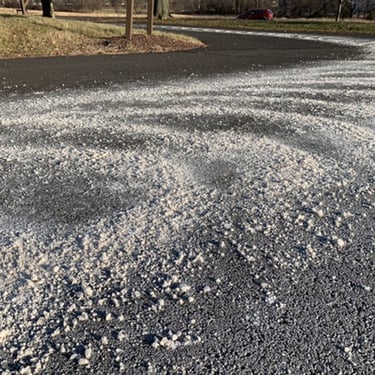Snow management is a critical aspect of property maintenance, especially in regions prone to routine snowfall. Property managers often enter into time and material snow management contracts with the belief that these agreements save money and reduce risk. However, a closer examination reveals that these contracts may incentivize the wrong type of behaviors, leading to unnecessary service delivery, overbilling, accelerated degradation of infrastructure, and environmental damage from salt runoff.
Unnecessary Service Delivery: One of the key issues with time and material snow management contracts is the potential for unnecessary service delivery. Since property owners pay for services rendered, contractors may be incentivized to provide more services than actually needed. This can result in excessive plowing, salting, and other activities that contribute to inflated costs without corresponding benefits.
Overbilling and Inconsistent Billing: Time and material contracts may also lead to overbilling and inconsistent billing practices. Without a fixed scope of work, contractors might overestimate the time spent on a job or include unnecessary materials in their billing. This lack of transparency can create frustration and financial strain for property owners who expected cost savings but end up facing unpredictable and inflated bills.
 Premature Deterioration of Surfaces: The use of salt for snow and ice management is common, but it comes with its own set of problems. In time and material contracts, the incentive to use more salt or salt when it’s not needed may lead to the accelerated deterioration of hard surfaces and interior floors of building entrances. Excessive salt can damage concrete, asphalt, and flooring, resulting in costly repairs and reduced property value over time.
Premature Deterioration of Surfaces: The use of salt for snow and ice management is common, but it comes with its own set of problems. In time and material contracts, the incentive to use more salt or salt when it’s not needed may lead to the accelerated deterioration of hard surfaces and interior floors of building entrances. Excessive salt can damage concrete, asphalt, and flooring, resulting in costly repairs and reduced property value over time.
Environmental Degradation from Salt Runoff: The environmental impact of snow management practices is a growing concern. Increased salt usage, driven by roadway de-icing and the pay-as-you-go nature of time and material contracts, contributes to salt runoff into water bodies. This runoff can harm aquatic ecosystems, contaminate drinking water, and damage vegetation along roadways. The long-term environmental consequences of such practices should not be overlooked.
While time and material snow management contracts may seem like a cost-effective solution on the surface, the unintended consequences paint a different picture. Unnecessary service delivery, overbilling, accelerated degradation of surfaces, and environmental damage make these contracts less favorable than they may initially appear. Property managers should carefully consider alternative contract structures, such as fixed-price contracts with clear scope definitions that promote transparency, cost efficiency, and sustainable snow management practices. Ultimately, striking a balance between cost savings and responsible property maintenance is crucial for long-term success.

